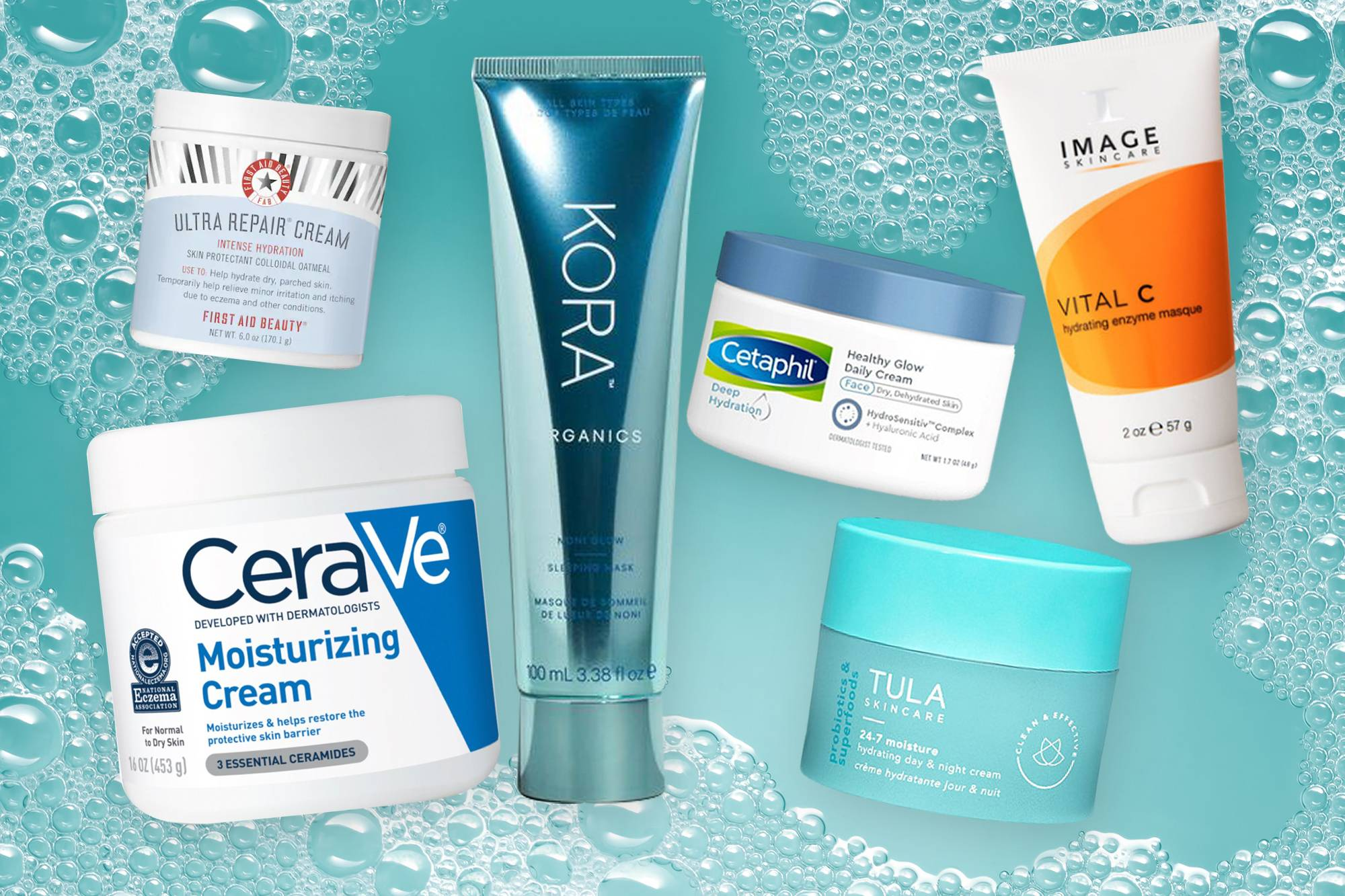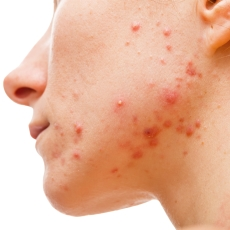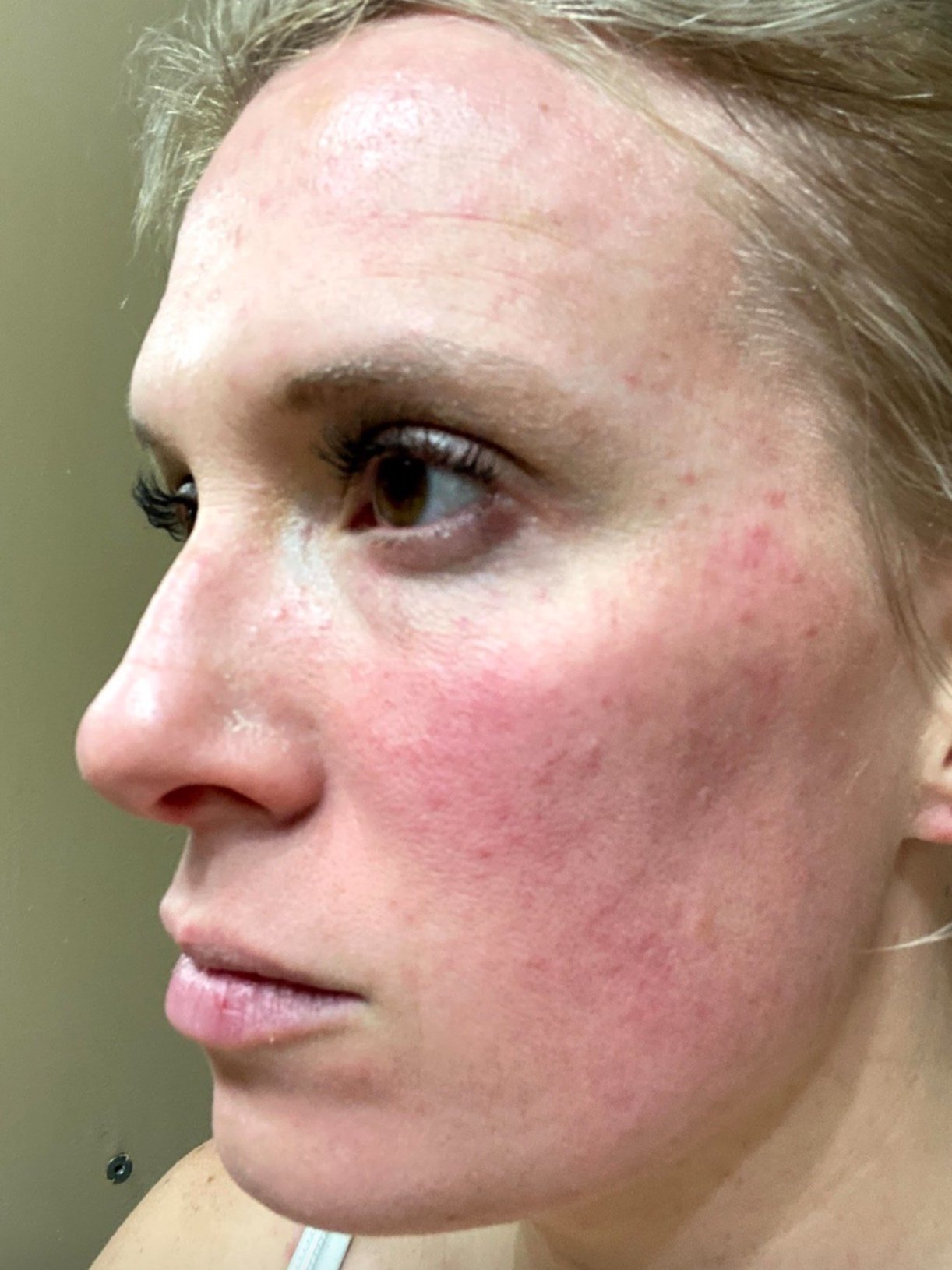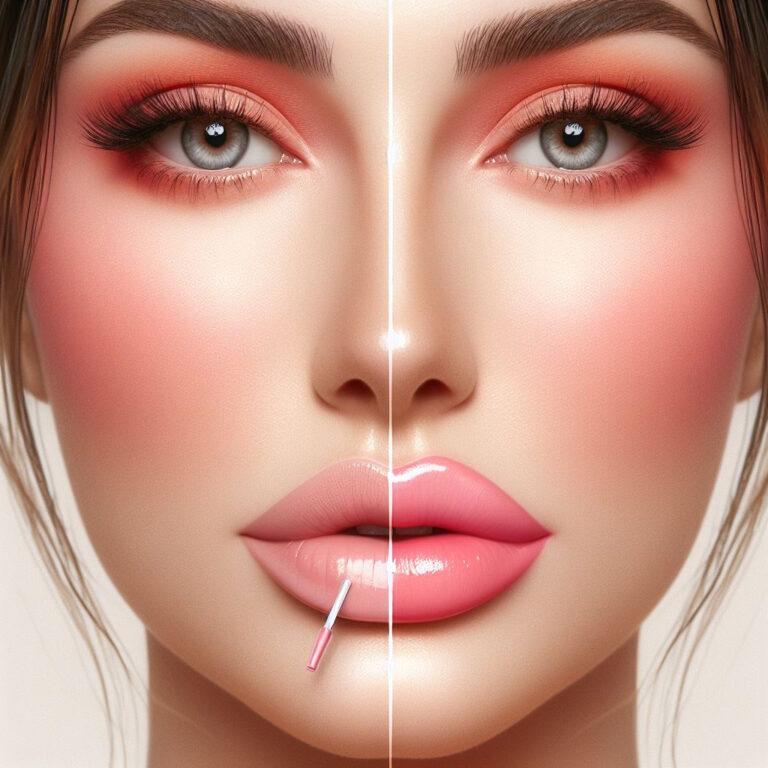Soothing Skincare for Sensitive Skin: Causes, Symptoms
Soothe and Protect: The Ultimate Guide to Skincare for Sensitive Skin

How Aloe Vera Can Soothe Your Sensitive Skin Naturally
Embarking on a journey to find the perfect skincare routine for sensitive skin can be daunting. With the myriad of products on the market, it’s easy to feel overwhelmed. However, this guide is here to illuminate the path to a soothing, gentle skincare regimen that caters specifically to sensitive skin needs.
From understanding the causes and symptoms to selecting the right products, we’ll explore how to nurture your delicate skin, ensuring it remains healthy, clear, and comfortable. Dive into our comprehensive guide and discover the transformative power of tailored skincare for sensitive skin.
Understanding Sensitive Skin
Sensitive skin is a prevalent issue that impacts almost everyone at some point during their lives, often due to elements like too much sun, heat, cold, or wind; lack of sleep; hormones; allergies; or certain skincare products.
How Do I Know if My Skin is Sensitive?
Sensitive skin can be itchy, stinging, red, or inflamed and may include tightness or swelling.
Genes may play a part in sensitive skin issues. Still, more commonly, they’re due to a compromised or disrupted moisture barrier that leaks moisture and irritants to penetrate their skin.
According to a study published in Dermatology, 1,039 people with skin sensitivity (defined as “very, slightly, or very sensitive”) reported experiencing unpleasant sensations caused by specific personal care and household products compared with 328 non-sensitive individuals.
Some of the common triggers and irritants for sensitive skin are:
- harsh ingredients,
- fragrances,
- sulfates,
- alcohol,
- exfoliants,
- sun exposure,
- jewelry.
Products to Avoid with Sensitive Skin
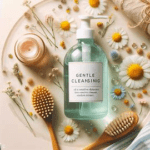 To prevent sensitivities from being activated, opt for gentle and fragrance-free products that won’t overstimulate your skin’s ability to adjust. When trying something new, take small steps to maintain its capacity for adaptation.
To prevent sensitivities from being activated, opt for gentle and fragrance-free products that won’t overstimulate your skin’s ability to adjust. When trying something new, take small steps to maintain its capacity for adaptation.
An all-natural skincare regimen such as aloe vera can effectively nourish and moisturize dry or sensitive skin, providing relief without aggravating delicate complexions. Physical exfoliators such as scrubs or cleansing brushes must also be avoided as these may worsen sensitive complexions.
Causes and Symptoms of Sensitive Skin
Sensitive skin is a widespread condition that may be brought on by many different elements, including diet, clothing, and the products you use. It may even indicate an underlying health condition.
It can be challenging for those with sensitive skin to find skincare products that won’t irritate or exacerbate their delicate complexion, leading to itching or inflammation. Therefore, dermatologist Annie Chiu recommends conducting extensive research before choosing your routine, considering a minimalist approach, and following her recommendations for minimalism in skincare.
“To determine what ingredients work with your skin, the easiest way is to read through the list of ingredients on the back of the packaging,” she advises. To prevent causing skin irritations such as fragrances or dyes that could trigger reactions such as alpha- and beta-hydroxy acids (salicylic acid and glycolic acid), sulfates preservatives, or harsh cleansers irritating or irritating it further, choose products without fragrances, dyes, alpha- and beta-hydroxy acids such as salicylic acid/Glycolic acid), preservatives or harsh cleansers
Alcohol should also be avoided to keep skin healthy and clear, as it can dehydrate your body’s systems and clog your pores, leading to inflammation and itchy patches on the face and body.
Other potential triggers for physical urticaria include physical contact urticaria (also known as hives), which occurs when touching sensitive skin areas, or dermographism – a reaction caused by scratching irritated areas on your body.
Diagnosing skin sensitivity from an outside perspective may be challenging, but symptoms like redness and itching are easy to identify. They could also be telling signs of an underlying skin disease or condition, so if any new patches of irritated or itchy skin appear, it’s essential to contact your healthcare provider immediately.
 RESTORE YOUTHFUL VITALITY WITH HYDROESSENTIAL™ SERUM
RESTORE YOUTHFUL VITALITY WITH HYDROESSENTIAL™ SERUMExperience smoother, younger-looking skin with Hydroessential™ Serum, the ultimate solution for aging skin. Crafted with all-natural ingredients and backed by science, this serum targets wrinkles, fine lines, dark spots, and blemishes, leaving your skin flawlessly radiant. Our serum is easy to incorporate into your daily routine, delivering visible results without any greasiness. Try Hydroessential™ today and witness a revitalized, vibrant complexion like never before. Secure your bottle now and embark on a journey to timeless beauty.
FOR YOUR SAFETY CLICK HERE TO BUY FROM THE OFFICIAL HYDROESSENTIAL WEBSITE
Tips for Choosing Gentle Skincare Products

The Best Skincare Products for Sensitive Skin: A Minimalist Guide
Protecting sensitive skin requires special consideration if you want a balanced complexion. Conditions such as weather and aging can trigger sensitive skin conditions.
When selecting skincare products explicitly tailored for sensitive skin, the ideal options should address each person’s needs and preferences. This will reduce the chances of irritation that lead to redness, itching, and swelling.
Ingredients to Look For With Sensitive Skin
 When selecting a cleanser, look for ingredients such as aloe vera and chamomile extract that have proven gentle on the skin while providing deep cleaning benefits. These ingredients have proven their worth over time!
When selecting a cleanser, look for ingredients such as aloe vera and chamomile extract that have proven gentle on the skin while providing deep cleaning benefits. These ingredients have proven their worth over time!
Vanicream Gentle Facial Cleanser, created by dermatologists to gently yet efficiently remove makeup and oil while leaving your skin feeling balanced, is another fantastic product designed for sensitive skin. Its formula is non-comedogenic and fragrance-free, which makes this cleanser suitable for even those with the most delicate complexions.
Choose lightweight moisturizers containing natural ingredients like jojoba oil and shea butter to support skin without over-drying.
Avoid Hydroxy Acids and Salicylic Acids
Avoid exfoliants that contain harsh chemicals like hydroxy acids and salicylic acid, as these could be too rough on sensitive skin, and overuse can irritate and dehydrate it further. Opt for gentle exfoliators such as those made with lactic acid, which gently breaks down dead skin cells while restoring the balance of microbiome bacteria to prevent further inflammation.
A Minimalist Skincare Routine
Sensitive skin is a widespread condition caused by multiple factors. It may range from mild itching, redness, or tightness to more severe forms such as eczema and rosacea.
 The environment may also contribute, with pollution, heat, and sun major culprits of skin sensitivities. According to dermatologist Maria Loucas, those with sensitive skin typically have skin susceptible to irritation and often have impaired skin barrier function.
The environment may also contribute, with pollution, heat, and sun major culprits of skin sensitivities. According to dermatologist Maria Loucas, those with sensitive skin typically have skin susceptible to irritation and often have impaired skin barrier function.
Chiu recommends using gentle cleansers and chemical exfoliants to prevent sensitive skin from worsening. Cleaners with alpha- and beta-hydroxy acids can disrupt the natural pH balance and exacerbate it further. She suggests choosing products containing anti-inflammatory ingredients, like hyaluronic acid, ceramides, and glycerin; fragrance-free options should also be selected.
The Four Essential Steps
A minimalist skincare routine for sensitive skin consists of four essential steps: cleansing, moisturizing, eye care, and sun protection. Here are some tips on how to choose and use the right products for each step:
- Cleansing: Use a gentle cleanser that is designed for sensitive skin and avoid anything with harsh chemicals or fragrances. Look for a product that contains mild surfactants, such as coco glucoside, and nourishing ingredients like glycerin. Wash your face twice a day, in the morning and at night, with lukewarm water and pat dry with a soft towel.
- Moisturizing: Apply a moisturizer that suits your skin type and needs. For dry skin, opt for a richer cream that contains emollients like ceramides and humectants like hyaluronic acid. For oily skin, go for a lighter gel or lotion that won’t clog your pores or make your skin greasy. Moisturize your face after cleansing and whenever your skin feels dry or tight.
- Eye care: Use an eye cream if you have sensitive skin around your eyes. Look for a product that contains soothing ingredients like aloe vera and chamomile, and avoid anything with alcohol, fragrance, or colorants. Gently dab a small amount of eye cream around your eyes with your ring finger and massage in circular motions.
- Sun protection: Finish your routine with sunscreen if you will be spending time outdoors. Choose a sunscreen formulated for sensitive skin with an SPF of at least 30. Look for a product that contains physical filters like zinc oxide or titanium dioxide, which are less likely to irritate your skin than chemical filters. Reapply sunscreen every two hours or more often if you sweat or swim.
Morning Routine for Sensitive Skin
Here’s a simple morning skincare routine for sensitive skin:
- Cleanse: Start by washing your face with a gentle cleanser like COSRX Low Ph Good Morning Gel Cleanser. This will help remove any dirt or oil that may have accumulated on your skin overnight.
- Tone: After cleansing, use a toner like COSRX AHA/BHA Clarifying Treatment Toner. This will help balance your skin’s pH levels and prepare it for the next steps.
- Serum: Apply a serum like The Ordinary Niacinamide 10% + Zinc 1%. This will help reduce inflammation and redness, which are common issues for sensitive skin.
- Moisturize: Finish off your morning routine with a moisturizer like CeraVe AM Facial Moisturizing Lotion. This will help keep your skin hydrated throughout the day and protect it from the sun with its SPF 30 formula.
Nighttime Skincare Routine
Here’s a simple nighttime skincare routine for sensitive skin:
- Remove Makeup: Start by removing your makeup with a gentle makeup remover like Bioderma Sensibio H2O Micellar Water. This will help remove any dirt or oil that may have accumulated on your skin throughout the day.
- Cleanse: After removing your makeup, use a gentle cleanser like CeraVe Hydrating Facial Cleanser. This will help remove any remaining impurities and prepare your skin for the next steps.
- Tone: After cleansing, use a toner like Thayers Alcohol-Free Rose Petal Witch Hazel Toner. This will help balance your skin’s pH levels and prepare it for the next steps.
- Serum: Apply a serum like The Ordinary “Buffet” + Copper Peptides 1%. This will help reduce inflammation and redness, which are common issues for sensitive skin.
- Moisturize: Finish off your nighttime routine with a moisturizer like CeraVe PM Facial Moisturizing Lotion. This will help keep your skin hydrated throughout the night.
Ingredients to Look for (and Avoid) in Sensitive Skin Products
Finding suitable skincare products can be difficult if you suffer from sensitive skin. That is why finding brands specifically tailored to your skin type is crucial.
If your skin is incredibly fragile, you should also opt for gentler ingredients, such as ceramides and  , that have proven less irritating to your complexion.
, that have proven less irritating to your complexion.
Lauren Fine, MD, a board-certified dermatologist based out of Chicago, advises limiting exposure to any irritating agents as much as possible, explaining that so-called clean or natural beauty products may contain ingredients that cause inflammation – for example, tea tree oil and lavender oil are two such oils known to aggravate the skin.
Skincare Product Ingredients to Avoid with Sensitive Skin
Be mindful to avoid using skincare products containing the preservative methylisothiazolinone, as this ingredient has been linked with contact dermatitis and other forms of allergic reaction in those with sensitive skin.
Formaldehyde, which has been shown to irritate the skin, should also be avoided by those with sensitive skin. Formaldehyde can be a preservative in many cosmetic products, so before purchasing any skincare item, read labels thoroughly – advises Rachel Greenfield, MD of New York City Dermatology.
 Jessica Coppola, an esthetic artist in NYC, recommends selecting products backed by clinical testing or created by dermatologists and estheticians for optimal results from your sensitive skincare regimen. Jessica suggests Burt’s Bees as a brand offering dermatologist-tested, soothing solutions.
Jessica Coppola, an esthetic artist in NYC, recommends selecting products backed by clinical testing or created by dermatologists and estheticians for optimal results from your sensitive skincare regimen. Jessica suggests Burt’s Bees as a brand offering dermatologist-tested, soothing solutions.
Top Skincare Brands for Sensitive Skin
Finding skincare products tailored to your needs may be challenging if you have sensitive skin. Take the time to develop a plan that will soothe your skin while protecting it from irritation or breakouts.
Ultimate Guide to Skincare for Rosacea: Reduce Symptoms (wherecanibuythat.us)
Avoid harsh ingredients when creating a skincare routine tailored for sensitive skin, including fragrances, alcohol, sulfates, and preservatives. Also, conduct a patch test on your forearm or neck before applying new products to your face.
Sun damage prevention is also essential for sensitive skin types. Wear sunscreen with an SPF rating of 30 or higher outdoors, and reapply it every few hours as necessary.
Now more than ever, skincare brands offer products designed specifically to soothe sensitive and irritation-prone skin, including French pharmacy Avene, which those with these conditions have long revered.
References: Skincare for Sensitive Skin
Sensitive skin: A relevant syndrome, be aware – PubMed (nih.gov)

